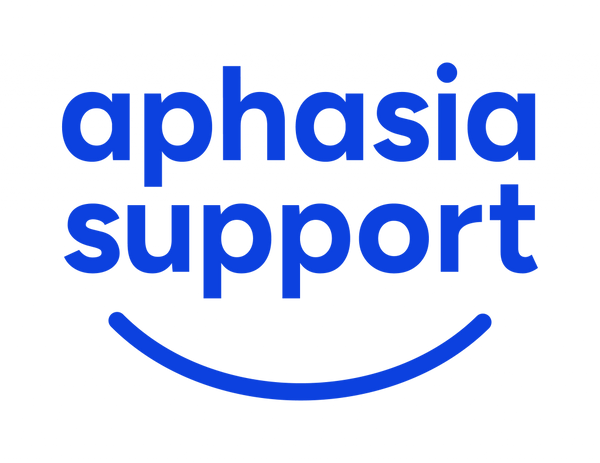Understanding Primary Progressive Aphasia

A Conversation with Specialist Speech and Language Therapist, Rosemary Townsend
At Aphasia Support, we are committed to raising awareness of lesser-known conditions that impact communication. One such condition is Primary Progressive Aphasia (PPA), a rare neurological condition that gradually affects a person’s ability to use and understand language.
Recently, we spoke with Rosemary Townsend, who works with the specialist aphasia charity Dyscover in Surrey. Rosemary is a long-standing advocate and innovator in this field, with a wealth of experience supporting people living with PPA and their families. In this blog, Rosemary shares insights into the unique challenges of PPA, and the importance of creating supportive communities for those affected.
What is PPA?

Rosemary explains:
"PPA stands for primary progressive aphasia. It’s a type of rare dementia that affects the parts of the brain responsible for language. Unlike stroke-related aphasia, which comes on suddenly, and usually improves, PPA develops gradually and worsens over time."
There are three main variants of PPA, associated with different patterns of protein deposition in the brain. The subtypes are called Semantic PPA, Non Fluent PPA and Logopenic PPA.
Each affect speech and language differently, but the common feature is an increasing difficulty with everyday communication. Over time, other changes in memory, behaviour, or physical coordination may also develop.
Symptoms often vary between people with PPA, but each of the subtypes tends to
have certain 'hallmarks'.
- Semantic PPA - e.g. may speak fluently but use terms like 'that thing' and 'you know'. They have difficulty with naming and with understanding what words mean.
- Non Fluent PPA - e.g. hesitant, effortful speech which can be difficult to understand. Grammatical errors and reversing words like “yes” and “no” is also common.
- Logopenic PPA - e.g. affects memory which means people often lose the thread mid conversation, and find it hard to follow instructions.
Speech and Language Therapists can work with people with PPA and their conversation
partners and carers to identify the particular challenges that are impacting their everyday conversations. With help and practice, couples can develop strategies to make conversation more effective and enjoyable, and enable the person with PPA to maintain relationships, social activities and independence.
Why is diagnosis often difficult?
PPA often starts in midlife (50s or 60s), a time when dementia is not usually expected.
Families may not immediately seek help.
People are often still in employment, they may be raising children, and have busy social lives. Early signs are subtle – someone may struggle to give presentations or chair meetings at work, withdraw from group conversations, or appear unusually quiet.
“Families often say, ‘He’s just quieter, he’s not as sociable.' Sometimes people think it’s hearing loss. They might try hearing aids, but find they don't make a difference. The problem is not with the ears – it’s with processing language.”
As a result, people may go months or even years without the right diagnosis, often being told their symptoms are due to stress, anxiety, or menopause.
Rosemary’s journey into PPA support
For many years, Rosemary ran groups at the charity, Dyscover, supporting people with post-stroke aphasia. Several years ago, she noticed a new group member who stood out as ‘different’ - their aphasia was getting worse.
This led her to read and learn more about PPA. She connected with other professionals
(including Dr Anna Volkmer, who is now Associate Professor at UCL, leading research into Speech and Language Therapy for PPA). Rosemary recognised that Dyscover could help people with PPA, but that a dedicated service was necessary. She designed and developed Dyscover’s unique model of individual therapy and peer support groups for people with PPA and their families.
Her work became even more personal when her own mother was diagnosed with PPA.
"This experience gave me great insights and a real drive to grow and develop a specialist, long-term PPA support service that anyone could access."
How is PPA different from stroke-related aphasia?
-
Post-Stroke aphasia: Sudden onset, caused by a clot or bleed. With therapy,
improvement in functional communication is expected and language recovery
is possible. - PPA: Gradual onset, caused by build-up of proteins in the brain. Language difficulties worsen over time, and additional symptoms develop, including problems with memory, organization, behaviour and sometimes coordination and balance.
Rosemary explains:
“The key difference is in the name – progressive. With PPA, difficulties start subtly
and continue to increase, unlike post-stroke aphasia where recovery is expected."
The role of speech and language therapy
There is currently no drug treatment for PPA. Speech and language therapy (SLT) is the main intervention and can make a big difference. Research in this area has grown rapidly in the last decade.
Rosemary describes two main therapy approaches:
- Impairment-focused therapy – practising words, phrases, or scripts that are relevant and important to people can help maintain access to words, and can aid everyday communication (e.g., “I have PPA, please slow down”).
- Compensatory approaches – strategies such as using visual prompts like photos, written key words, or maps can help people manage conversations more effectively, and reduce frustration. Rosemary often helps people develop and use these as part of an approach called communication partner training (where both the person and their partner learn techniques for better conversations).
Rosemary shares:
“Everyone’s needs are different. Therapy works best when it’s personalised, when it
involves family members or close friends, and when it is focussed on preserving the
person’s ability to participate in conversations with the people who are most important to that individual.”
The emotional side of a diagnosis
"One of the hardest moments is when people first hear the words 'primary progressive
aphasia.' It’s not a term people usually recognise or know anything about. Often they’re told: ‘There’s nothing you can do.’ That’s devastating. But it’s not true. While we can’t stop PPA, therapy can help people manage their symptoms, stay connected, and feel more in control.”
Rosemary stresses that breaking the stigma around dementia is vital. Just as cancer is now better understood with more specific diagnoses and treatment pathways, she hopes the same will happen for PPA and other rare dementias.
What should you do if you’re worried about PPA?
- Seek help early – If language changes are worsening and affecting your everyday life, see your GP.
-
Ask for referral – This may be to a neurologist, memory clinic, or speech and
language therapist. -
Know your options – Find out if your local NHS Speech and Language Therapy
service offers help for PPA (not all do). Charities like Dyscover and Rare Dementia Support can help, and private therapists with PPA expertise may be available. -
Don’t feel alone – Support is growing, both in the UK and internationally. Online
therapy and support groups mean help can reach beyond local areas.
Looking ahead
Rosemary is optimistic about the future:
“Over the last 10 years, research into SLT for PPA has tripled. There’s a growing international community of therapists and researchers. People with lived experience of PPA are contributing. We’re building knowledge, and importantly, people with PPA are benefiting from support, and their voices are being heard."
This year, Rosemary worked with Dr Anna Volkmer to launch the first ever International
PPA Awareness Day, which will run again on 10 April 2026. It’s a chance to connect, share stories, and raise awareness of this rare but important condition.
Useful links
- Rare Dementia Support - Information, advice, and support groups.
-
Royal College of Speech and Language Therapists - Campaigning for
more equitable access to SLT for people with PPA. -
Association of Speech and Language Therapists in Independent Practice
(ASLTIP) - Find a private speech and language therapist. - Dyscover - Charity specialising in online support.
Final words
PPA may be rare, but through awareness, advocacy, and therapy, there is hope. As Rosemary says: “You can’t control PPA, but you can manage it – and you don’t have to face it alone.”

